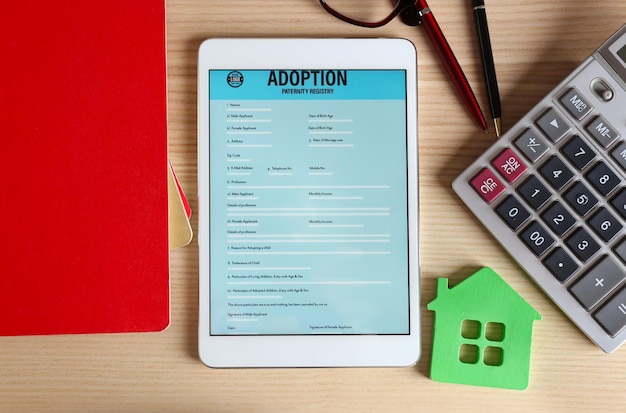Section 8 Housing Choice Voucher Program: 2025 Updates & Tips

The Section 8 Housing Choice Voucher Program provides rental assistance to low-income families, the elderly, and people with disabilities, enabling them to afford decent, safe, and sanitary housing in the private market; understanding the latest updates and application tips for 2025 is crucial for eligible individuals and families.
The Section 8 Housing Choice Voucher Program: Latest Updates and Application Tips for 2025 are essential for those seeking affordable housing solutions. This guide provides the latest information and actionable tips to navigate the application process effectively.
Understanding the Section 8 Housing Choice Voucher Program
The Section 8 Housing Choice Voucher Program, funded by the U.S. Department of Housing and Urban Development (HUD), offers a vital lifeline for millions. It allows low-income families, seniors, and individuals with disabilities to rent housing in the private market. Understanding the program’s mechanics is the first step towards accessing this valuable assistance.
Eligibility Requirements
To qualify for Section 8, applicants must meet specific income limits, which vary by location and family size. Additionally, citizenship or eligible immigration status is generally required. The program also considers factors such as criminal history and past rental performance.
How the Program Works
Once approved, participants receive a voucher and can search for housing that meets program standards. The voucher covers a portion of the rent, with the tenant paying the difference. This ensures affordability and expands housing options.
- Income limits vary by location and family size.
- Participants choose their own housing in the private market.
- Vouchers cover a portion of the monthly rent.
The Section 8 program plays a crucial role in ensuring that vulnerable populations have access to safe and affordable housing. By understanding the eligibility requirements and how the program functions, potential applicants can better prepare for the application process and increase their chances of success.

2025 Updates to the Section 8 Program
Staying informed about the latest updates to the Section 8 program is crucial. Changes in funding, regulations, and eligibility criteria can significantly impact both current participants and prospective applicants. Here are some of the key updates for 2025.
Changes in Funding Allocation
Each year, HUD allocates funding to Public Housing Agencies (PHAs) that administer the Section 8 program locally. Changes in this allocation can affect the number of vouchers available and the length of waiting lists. Keeping an eye on these changes can help applicants understand the competition for vouchers in their area.
Revised Income Limits and Guidelines
Income limits are adjusted periodically to reflect changes in the economy and cost of living. For 2025, there may be revised income limits, potentially making more or fewer individuals eligible. Applicants should check the updated guidelines for their specific location.
- Monitor HUD announcements for funding changes.
- Check local PHA websites for updated income limits.
- Attend community meetings for program updates.
Keeping abreast of these updates ensures that applicants have the most accurate information when applying for Section 8. This knowledge can improve their chances of meeting eligibility requirements and navigating the application process smoothly. Being proactive and staying informed is key to maximizing the benefits of the program.
Navigating the Application Process: A Step-by-Step Guide
Applying for Section 8 can seem daunting, but breaking it down into manageable steps can make the process less intimidating. This step-by-step guide provides a clear roadmap for navigating the application process effectively.
Researching Local Public Housing Agencies (PHAs)
The first step is to identify the PHA responsible for administering the program in your area. PHA websites provide information on eligibility requirements, application procedures, and waiting list status.
Completing the Application Form Accurately
The application form requires detailed information about your household, income, and assets. Accuracy is crucial, as errors or omissions can delay or disqualify your application. Ensure all information is current and verifiable.
Gathering Necessary Documentation
Applicants must provide documentation to support the information provided on the application form. This typically includes proof of income, identification, and Social Security cards. Having these documents ready can expedite the process.
- Identify your local PHA and visit their website.
- Complete the application form with accurate information.
- Gather all required documentation beforehand.
Following these steps can help applicants prepare a strong and complete application, increasing their chances of being approved for Section 8. Careful preparation and attention to detail are essential for a successful outcome.
Tips for a Successful Section 8 Application
Submitting a successful Section 8 application requires more than just filling out a form. It involves understanding the program’s nuances and taking proactive steps to strengthen your application. Here are some valuable tips to increase your chances of success.
Demonstrating Stable Income and Housing History
PHAs look for applicants who can demonstrate a history of stable income and responsible housing behavior. Providing evidence of consistent employment and positive rental references can significantly improve your application.
Addressing Potential Red Flags
If you have a criminal record or past eviction, address these issues proactively in your application. Provide explanations and evidence of rehabilitation or mitigating circumstances.
Following Up on Your Application
After submitting your application, follow up with the PHA to ensure it has been received and to inquire about the status of your application. This shows your interest and can help prevent your application from being overlooked.

- Provide evidence of stable income and positive rental history.
- Address any potential red flags with explanations.
- Follow up with the PHA to check on your application status.
By implementing these tips, applicants can strengthen their Section 8 applications and increase their likelihood of approval. Proactive preparation and attention to detail are key to navigating this complex process successfully.
Finding Section 8-Approved Housing
Once you receive a Section 8 voucher, the next step is to find housing that meets program standards and accepts vouchers. This can be a challenging but rewarding process. Here’s how to navigate the search effectively.
Utilizing Online Resources and Databases
Many websites and databases list apartments and homes that accept Section 8 vouchers. These resources allow you to search by location, size, and other criteria, making it easier to find suitable housing options.
Networking with Local Landlords and Property Managers
Reach out to local landlords and property managers to inquire about their willingness to accept Section 8 vouchers. Building relationships can open doors to housing opportunities that may not be advertised.
Ensuring Housing Meets Program Standards
Before signing a lease, ensure that the housing meets the PHA’s standards for safety and habitability. The PHA will conduct an inspection to verify compliance with these standards.
- Use online resources and databases to find Section 8-approved housing.
- Network with local landlords and property managers.
- Ensure housing meets PHA standards before signing a lease.
Finding suitable housing is a critical step in the Section 8 process. By utilizing available resources and networking effectively, voucher holders can secure safe and affordable housing that meets their needs.
Maintaining Compliance with Program Requirements
Receiving a Section 8 voucher is just the beginning. To maintain your eligibility and continue receiving assistance, it’s essential to comply with program requirements. Staying informed and proactive is key to avoiding potential issues.
Reporting Changes in Income and Household Composition
Participants are required to report any changes in income or household composition to the PHA promptly. Failure to do so can result in termination of assistance.
Adhering to Lease Agreements and Program Rules
Voucher holders must adhere to the terms of their lease agreements and comply with all program rules and regulations. This includes paying rent on time and maintaining the property in good condition.
Participating in Required Recertification Processes
The PHA will periodically recertify your eligibility for the program. This involves providing updated information and documentation to verify your continued compliance with program requirements.
- Report changes in income and household composition promptly.
- Adhere to lease agreements and program rules.
- Participate in required recertification processes.
Maintaining compliance with program requirements ensures that voucher holders can continue to benefit from Section 8 assistance. By staying informed and proactive, participants can avoid potential pitfalls and maintain their eligibility for the long term.
| Key Point | Brief Description |
|---|---|
| 📝 Eligibility | Income limits and eligible immigration status are key. |
| 🏘️ Finding Housing | Use online resources and network with landlords. |
| ✅ Compliance | Report income changes and adhere to lease terms. |
| 📅 2025 Updates | Stay informed on funding and income limit changes. |
Frequently Asked Questions (FAQ)
▼
The Section 8 program provides rental assistance to low-income families, the elderly, and people with disabilities, allowing them to afford housing in the private market. It’s funded by the U.S. Department of Housing and Urban Development (HUD).
▼
Eligibility is based on income limits, which vary by location and family size. Generally, applicants must be U.S. citizens or have eligible immigration status. PHAs also consider criminal history and rental history.
▼
Applications are submitted to local Public Housing Agencies (PHAs). The PHA will provide the application form and instructions. It’s crucial to complete the form accurately and provide all required documentation.
▼
You can use online resources and databases that list Section 8-approved housing. Also, network with local landlords and property managers to inquire about their willingness to accept vouchers.
▼
Voucher holders must report any changes in income or household composition to the PHA. They must also adhere to lease agreements, pay rent on time, and participate in required recertification processes.
Conclusion
Navigating the Section 8 Housing Choice Voucher Program can be complex, but understanding the latest updates and following these application tips for 2025 can significantly improve your chances of success. By staying informed, preparing thoroughly, and maintaining compliance, you can access safe and affordable housing and secure a stable future for yourself and your family.
